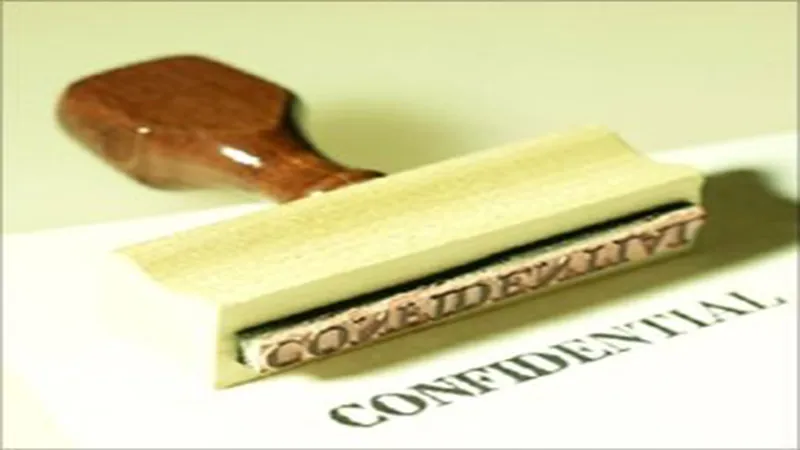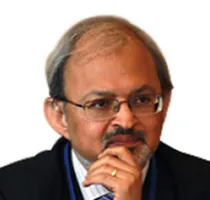The corporate espionage case has, as expected, been followed by an all-hands-on-deck crackdown by the state machinery, desperate to plug leaks in the adrift, if not yet sinking, ship of state.
Well, it is always humbling to recall that that the ship of state is the one vessel which has been acknowledged as the only one to leak most from the top. In the US, they even have a word for it -- called 'pleaks' i.e. planted leaks.
Invariably therefore, various newspapers now constantly inform us about several discussions at the highest echelons of key ministries and the Cabinet Secretariat aimed at making the processes and procedures related to the movement of not just classified files but even personnel, more stringent. As a first, a government alarmed by Leakgate has taken upon itself to make visitors' entry to ministries far tougher.
Well ask any normal law abiding citizen who has tried to enter Shastri Bhawan to gain access to a lowly desk officer. He will vouch that the process of cajoling a pass for entry through the gates of these hallowed portals is already so tough that many would consider the rack more preferable.
Lost in this maelstrom is the unasked and unanswered question about what are the secrets the government, really needs to keep? One can appreciate the need to keep news about the movements of troops secret. One can also sympathise with the need to keep secret the names of shady operatives employed by the unnamed denizens in the Cabinet Secretariat. But has anyone taken a minute to ask for the need of sealing, and sequestering away the bulk of the work being done by ministries dealing with economic and social welfare?
Therefore, before we go overboard, the plea is to conduct a thorough need-for-security-and-secrecy audit of the leaked information. How much of this information would have been better off if it had been allowed to exist in the public domain? How much of it could have been made routinely accessible to the same users who, denied the information then contrived and conspired to obtain it? Is the information asymmetry that spawned such corrupt practices really needed?
As it is, one has problems with the number of things the machinery that runs the government's defence and home affairs wishes to keep secret from prying eyes. We can routinely locate the nearest pani-puri wala using Google maps, but our vanity must still take a knock when it nudges our wanderlust to take that selfie on the tarmac, or at countless railway stations, not to forget the Bridge at Howrah.
I remember that when seismic data relating to exploration of resources used to be taken abroad for processing we routinely sent security personnel to data centres half way across the world. The need for security protocols on hard data in an age when digitised versions can be copied multiple times and flashed to any corner of the world may sound as quaint as the changing of the guards at Buckingham Palace, the only problem is that maintaining Stone Age protocols in a digitised connected world is not just expensive but risky business.
One can only wonder at reports about the going rate for the papers stolen from the errant ministries ranged between Rs 10,000 to 1 lakh. Was the high premium for these services, testimony to their market value or merely the consequence of the sheer difficulty of getting access to goings on that should anyway have been in the public domain?.
These questions are important because the concern is that with a deeply rattled MHA deciding to underline and reiterate the manual of departmental security instructions, you can be sure the premium for trading in information is only set to get higher. Let us not under-rate either the native ingenuity, or belittle the colossal appetite for taking risks and reaping rewards that resides in our never-say-die entrepreneurial spirit!
In the midst of the brouahaha I only remember the coal secretary standing out of line and declaring that his ministry had no secrets to hide, and therefore obviously none to steal. For the solution lies not in lockdown, but in greater transparency. It is the only method of ensuring that the hefty premiums born out of the asymmetry of information vanish.
Cannot a large part of the need for this secrecy be dispensed with by the simple expedient of not leaving rules and guidelines so ambiguously open to multiple interpretations? Yes, this is possible through the introduction of clear and simple standard operating procedures that eliminate the need for discretion.
For it is the latitude available for discretion that has made decision making so unpredictable in first place. And it is not just the nitty-gritty of the processes and procedures. There is a crying need is to engage in open rather than closed door confabulations while framing policies, rules and guidelines.
For a government committed to 'minimum government, maximum governance' it is time that policy making in key economic ministries become far more open and consultative, its acts and actions predictable. In the long run, that is the only way to ensure that policies for the auctions of licenses, processes of tendering and award, and actions to ensure their implementation -- are not subject to capture by select coteries.
Access and control, to information and to the guardians of that information, has always been precisely what the exercise of power has been all about. If the only lesson learnt is to further restrict access and control, government power is certainly set to get a solid boost. The only sufferer, however, is going to be one little campaign promise made about minimum government maximum governance.
(Sunjoy Joshi is Director of Observer Research Foundation)
Courtesy: rediff.com
The views expressed above belong to the author(s). ORF research and analyses now available on Telegram! Click here to access our curated content — blogs, longforms and interviews.

